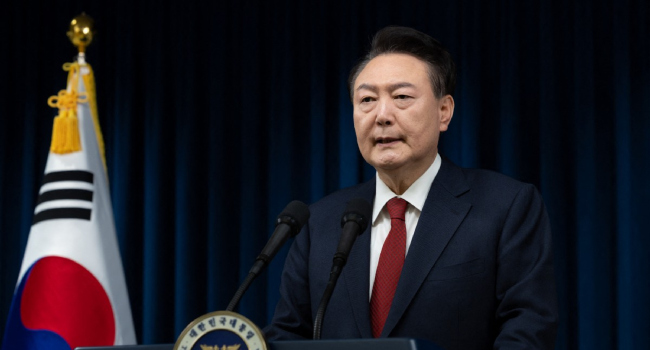The justice ministry in South Korea has imposed an overseas travel ban on President Yoon Suk Yeol following his botched attempt to impose martial law.
Prosecutors are now weighing possible insurrection charges against the president.
On Monday, the defence ministry said Yeol was still legally commander-in-chief, but growing dissent among senior military officers has led to questions on the scope of his powers.
Asked what actions have been taken against the president, Oh Dong-woon, head of the Corruption Investigation Office for high-ranking officials, said the president has been banned from leaving the country.
Yeol barely survived an impeachment vote, in an opposition-led parliament, during the weekend.
Amid strident calls for his resignation, his political survival hangs by a thread.
On December 3, the president declared martial law during a televised address, accusing the opposition Democratic Party of engaging in “anti-state activities” and collaborating with North Korean factions to undermine the government
When martial law is declared, there is a suspension of civil rights and the imposition of military law. This typically happens during emergencies.
The declaration marked the first instance of martial law in South Korea in over 40 years. It was met with immediate backlash from lawmakers and the public.
The situation escalated quickly, with military forces surrounding the national assembly.
However, within hours, opposition lawmakers convened and unanimously voted to revoke the decree, effectively nullifying Yeol’s order.
The president said he was “very sorry” for the decision and promised not to go down that route again.
The ruling party had said they would seek Yeol’s resignation and asked that the president be suspended to protect the country from “grave danger”.
The Cable












